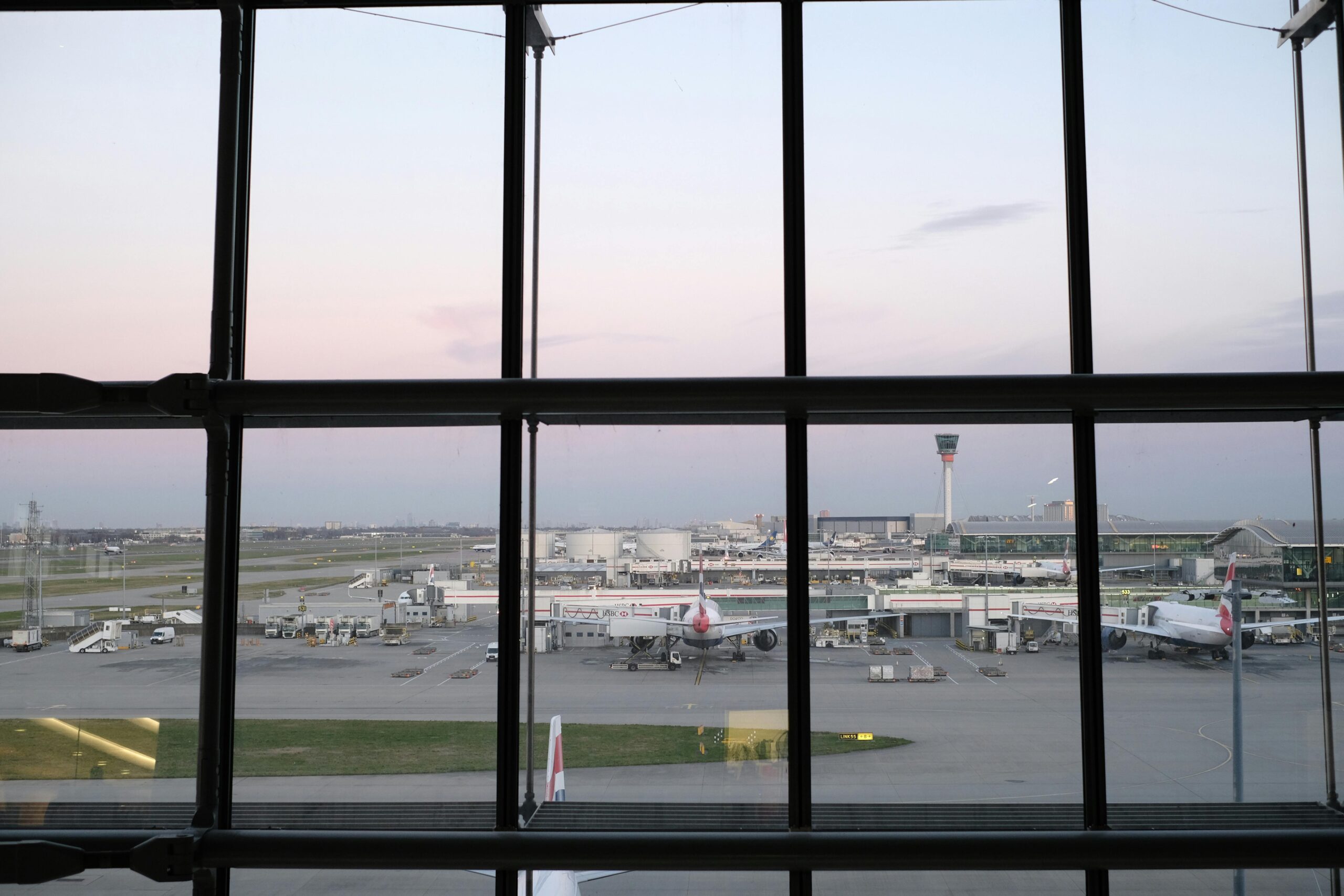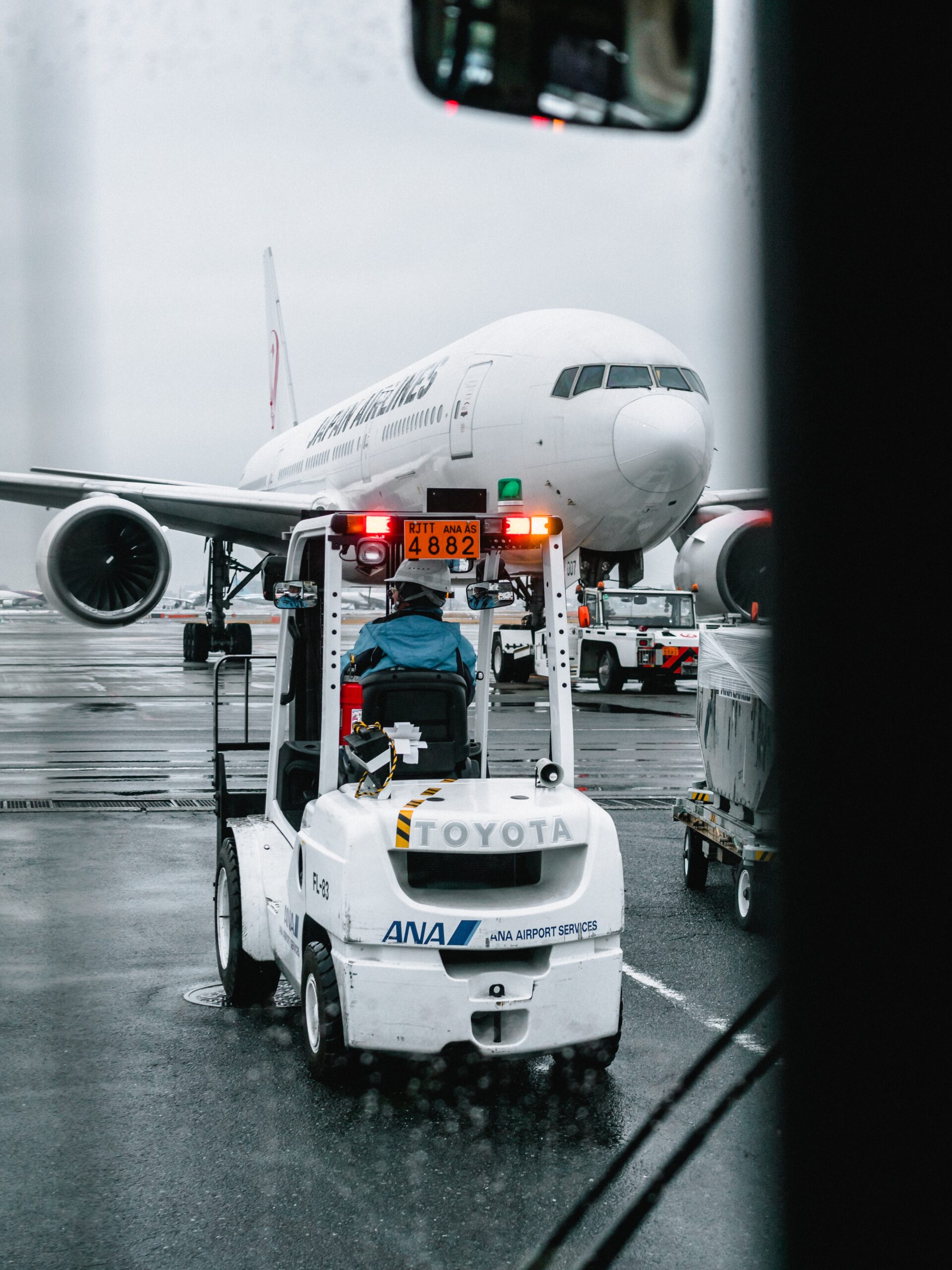The Significance of Aviation Security: Safeguarding the Skies
Introduction:
In today’s interconnected world, aviation plays a pivotal role in facilitating global travel and commerce. As an airport security manager, you bear the responsibility of ensuring the safety and security of passengers, aircraft, and airport personnel. This article delves into the crucial importance of aviation security, shedding light on its multifaceted nature and emphasizing the need for unwavering vigilance and compliance.

Ensuring Passenger Security
Aviation security is paramount to ensuring the security of passengers. With millions of individuals traveling by air each day, airports must remain vigilant in identifying and mitigating potential threats. Rigorous security measures, including passenger screening, baggage checks, and advanced security technologies, are in place to detect and prevent the transportation of dangerous items or individuals on board.
Protecting Aircraft and Infrastructure
The security of aircraft and airport infrastructure is of utmost importance. Safeguarding planes from acts of terrorism, sabotage, or unauthorized access helps maintain the integrity of the aviation industry. Security protocols such as access control, perimeter surveillance, and regular security audits help fortify airports and prevent unauthorized individuals from compromising the safety of aircraft and infrastructure.
Preventing Terrorism and Criminal Activities
Aviation has unfortunately become a target for terrorist organizations and criminal activities. Robust security measures aim to detect and deter potential threats, preventing the occurrence of catastrophic incidents. By adhering to strict regulations, conducting thorough background checks, and implementing enhanced security technologies, aviation stakeholders can collectively safeguard against terrorism and criminal acts such as human trafficking or the smuggling drugs, weapons and other contraband items.
Mitigating the Risk of Illegal Substances
Airports serve as vital gateways for international trade and commerce. However, they are also vulnerable to the smuggling of illegal substances, such as drugs or contraband. Effective aviation security measures, including baggage screening, cargo inspections, and collaboration with law enforcement agencies, significantly reduce the risk of illegal substances being transported via air travel.
Ensuring Continuity of Operations
Disruptions to aviation operations can have far-reaching consequences. Airport closures or flight delays caused by security breaches, incidents, or threats can lead to significant financial losses, inconvenience to passengers, and reputational damage. Aviation security helps maintain the continuity of operations, minimizing the potential for disruptions and ensuring a seamless travel experience for passengers.
Meeting Regulatory Requirements
Aviation security is not only essential for safety but also mandated by regulatory bodies. National and international organizations, such as the UK Civil Aviation Authority (CAA), the European Union (EU), and the International Civil Aviation Organization (ICAO), establish and enforce stringent security regulations. Compliance with these regulations is crucial for aviation stakeholders to maintain operational licenses, certifications, and the trust of passengers.
UK approach vs EU approach:
- Regulatory Framework: In the UK, aviation security is primarily developed by the Department for Transport (DfT) and regulated by the UK Civil Aviation Authority (CAA). The CAA sets out specific security requirements and guidelines for airports and airlines operating within the UK. On the other hand, in Europe, aviation security is governed by the European Union (EU), they establish common aviation security regulations and standards across all European Union (EU) member states, aiming to ensure a consistent approach to security throughout the EU.
- Screening Processes: While both the UK and European countries follow similar screening processes, there may be slight variations in specific procedures. For example, the use of certain security technologies or the deployment of security personnel may differ based on national practices and resources. However, the overall objective remains the same: to identify and mitigate potential threats to aviation security.
- Pre-Travel Passenger Data: In terms of pre-travel passenger data, there may be differences between the UK and European approaches. The UK has implemented its own Passenger Name Record (PNR) system, which requires airlines to provide specific passenger data for flights to and from the UK. In Europe, the EU has also introduced the PNR Directive, which harmonizes the collection and use of passenger data across EU member states. However, implementation and data retention periods may vary between countries.
- Security Cooperation: The UK, being a former member state of the EU until December 31, 2020, had close cooperation with other European countries on aviation security matters. Post-Brexit, the UK has continued to maintain collaboration and information sharing with European partners on security issues through bilateral agreements. However, there may be some differences in the mechanisms of cooperation and coordination between the UK and the EU in certain areas of aviation security. Initially all EU standards were retained in UK law, however, as time goes on new legislation may be in-acted by the UK Department for Transport.
- Security Infrastructure: Due to varying sizes and types of airports, there may be differences in the security infrastructure and capabilities across the UK and European countries. Larger international airports often have more advanced security technologies and extensive resources, whereas smaller regional airports may have comparatively limited infrastructure. However, irrespective of the size, all airports aim to adhere to the prescribed security standards to ensure the safety and security of aviation operations.
It’s important to note that these differences do not undermine the commitment of both the UK and European countries to maintaining robust aviation security. The ultimate objective of all aviation stakeholders is to ensure the safety and security of passengers, aircraft, and airport infrastructure, regardless of the specific approach taken within each jurisdiction.
Conclusion:
Aviation security is a vital aspect of the aviation industry, encompassing the safety and protection of passengers, aircraft, infrastructure, and the prevention of criminal activities. By prioritizing and investing in robust security measures, aviation stakeholders can instill confidence in the traveling public and maintain the industry’s integrity. Compliance with regulatory requirements and ongoing training, such as the General Aviation Security Training (GSAT), is essential to ensure that security managers and safety compliance managers remain updated on evolving threats and best practices.
FAQs:
Q1. What is the role of aviation security in preventing terrorism? Aviation security plays a crucial role in preventing terrorism by implementing robust measures to detect and deter potential threats. These measures include advanced passenger screening techniques, thorough baggage checks, and the use of sophisticated security technologies to identify and intercept individuals who may pose a risk to aviation. By ensuring the integrity of the aviation system, security managers contribute to the overall safety and security of passengers, aircraft, and airport infrastructure.
Q2. How do airports screen passengers and baggage for potential threats? Airports employ various methods to screen passengers and baggage for potential threats. This includes the use of X-ray scanners, metal detectors, explosive trace detection equipment, and body scanners to identify prohibited items or dangerous substances. Additionally, security personnel may conduct physical pat-downs or utilize advanced behavioral analysis techniques to detect suspicious behavior. These screening procedures are designed to maintain the highest levels of security while minimizing inconvenience to passengers.
Q3. What measures are in place to detect and prevent the smuggling of illegal substances? Aviation security incorporates stringent measures to detect and prevent the smuggling of illegal substances. These measures include thorough baggage screening using advanced scanning technologies, cargo inspections, and the implementation of security protocols for handling and transporting goods. Close collaboration between airport authorities, law enforcement agencies, and customs officials helps identify and intercept attempts to smuggle drugs, contraband, or other illegal substances via air travel.
Q4. How does aviation security contribute to the continuity of airport operations? Aviation security plays a vital role in ensuring the continuity of airport operations. By implementing robust security protocols, airports can effectively respond to potential security breaches, incidents, or threats. Swift and efficient security procedures help minimize disruptions, such as flight delays or cancellations, and maintain the smooth flow of passengers and goods. By protecting the integrity of the aviation system, security managers contribute to the overall stability and functionality of airports.
Q5. Which regulatory bodies oversee aviation security in the UK and Europe? Aviation security in the UK is overseen by the UK Civil Aviation Authority (CAA). The CAA establishes and enforces regulations and standards to ensure the safety and security of aviation operations within the UK. In Europe, aviation security is regulated by the European Union (EU). The EU works closely with member states to develop and implement comprehensive aviation security regulations that align with international standards and best practices.
Q6. How can aviation stakeholders ensure compliance with security regulations? Aviation stakeholders can ensure compliance with security regulations by staying informed about the latest regulatory requirements and guidelines issued by the relevant authorities. This includes actively engaging with national regulatory bodies such as the UK Civil Aviation Authority (CAA) and international bodies such the European Union (EU) to understand and implement the necessary security measures. Additionally, aviation stakeholders can participate in industry training programs like the General Aviation Security Training (GSAT) to enhance their knowledge and ensure compliance with the evolving security landscape.
Please note that the answers provided are for informational purposes only, and it’s important to consult official guidelines and regulations for comprehensive and up-to-date information on aviation security practices.
Learn more – references
- UK Civil Aviation Authority (CAA): [https://www.caa.co.uk/]
- European Union Aviation Safety Agency (EASA): [https://www.easa.europa.eu/]
- International Civil Aviation Organization (ICAO): [https://www.icao.int/]
Please note that the specific web addresses of the references may change over time, so it’s always a good idea to verify the URLs for the most up-to-date information.






